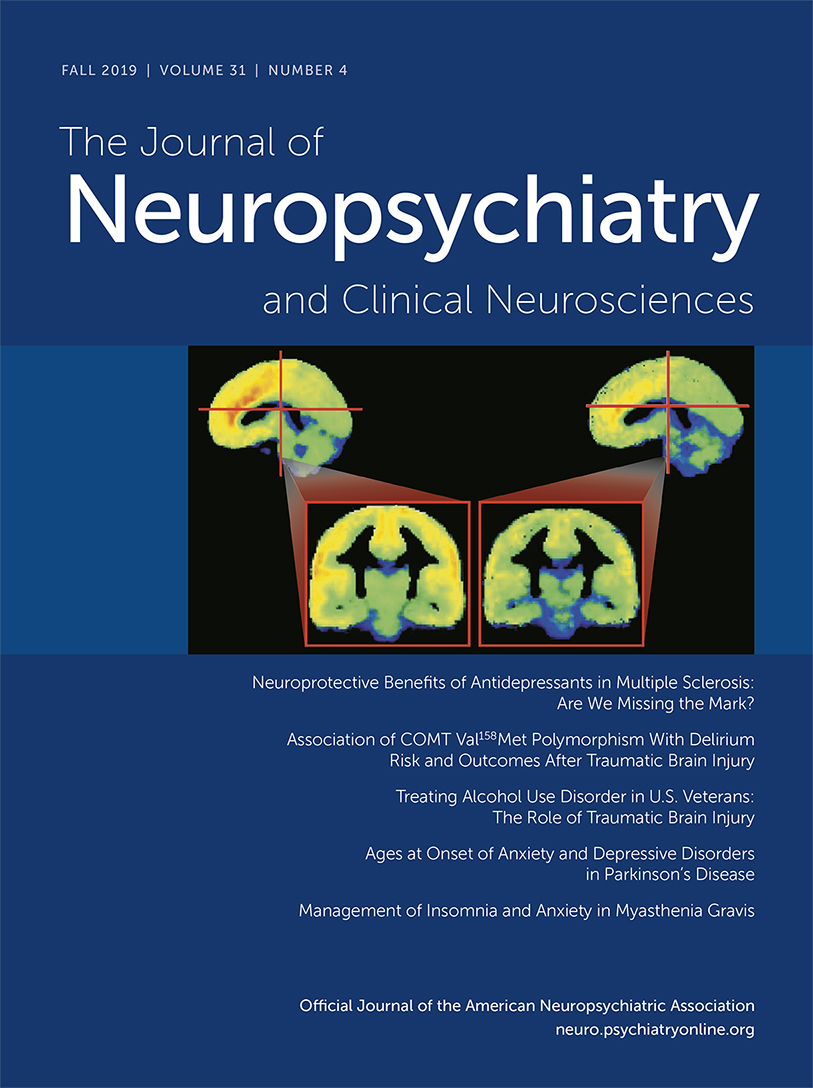Risk of Neuroleptic Malignant Syndrome in Encephalitides: Response to Caroff
To the Editor: We agree with Dr. Caroff that the symptoms highlighted in our review article are not unique to anti-N-methyl-D-aspartate receptor (NMDAR) encephalitis, and other autoimmune and infectious encephalitides should always be considered in the differential diagnosis as well and worked up appropriately. The published diagnostic guidelines (1) serve as a very useful guide for the treating clinician.
Regarding the risk of neuroleptic malignant syndrome, this seems to be a feature that is particularly prominent in anti-NMDAR encephalitis (2), but we are not aware of any studies examining head-to-head comparisons of the rates of neuroleptic malignant syndrome in other autoimmune encephalitides. Pathophysiologically, the fact that the antibodies specifically target the NMDA receptor leads to impaired cross-talk between NMDA and dopamine receptors (3) and could be why patients with the disorder are susceptible to neuroleptic malignant syndrome. It is also possible that neuroleptic malignant syndrome in patients with encephalitis as described in some previous reports may have been a result of undiagnosed anti-NMDAR encephalitis. Again, as Dr. Caroff implied, caution should be exercised when using neuroleptics for any patient suspected of having encephalitis.
1 : A clinical approach to diagnosis of autoimmune encephalitis. Lancet Neurol 2016; 15:391–404Crossref, Medline, Google Scholar
2 . Neuroleptic intolerance in patients with anti-NMDAR encephalitis. Neurol Neuroimmunol Neuroinflamm 2016; 3(5):e280Crossref, Medline, Google Scholar
3 : Single-molecule imaging of the functional crosstalk between surface NMDA and dopamine D1 receptors. Proc Natl Acad Sci USA 2013; 110:18005–18010Crossref, Medline, Google Scholar



